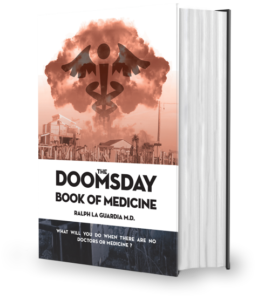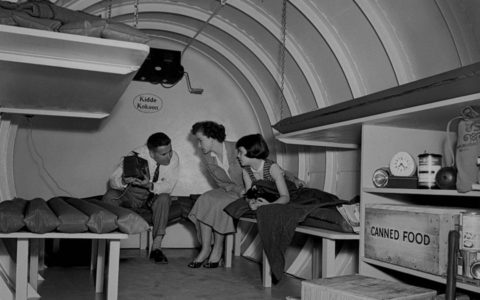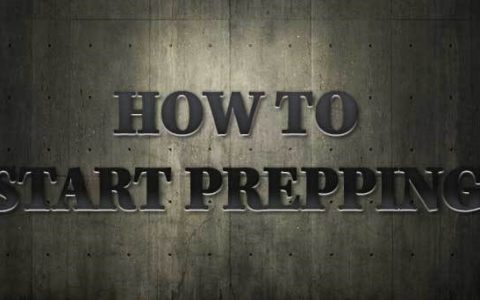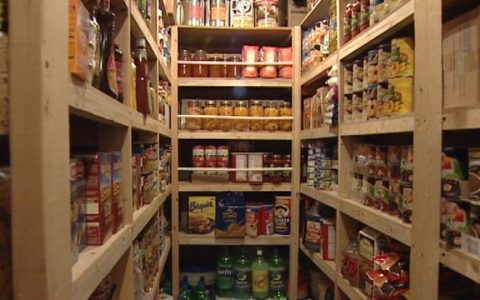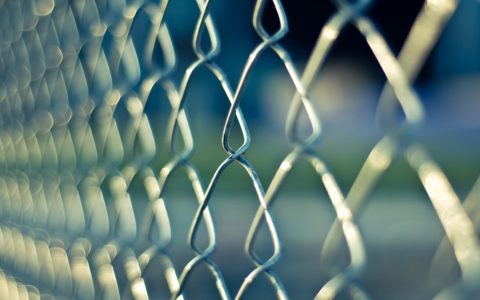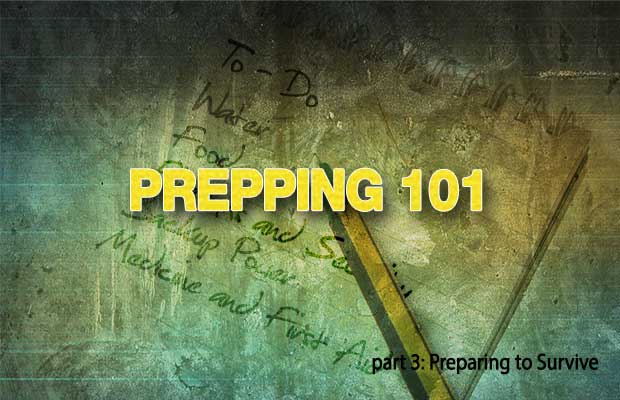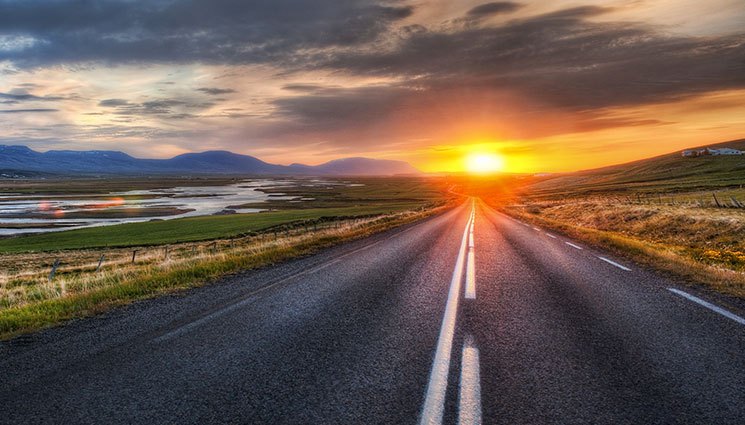
This is the second in a series for the beginning prepper on how to get started Prepping. If you want to read part 1, you can view that article here. In the first article, we covered defining your Priorities and making sure you have a sufficient store of water.
Step 3 – Food Storage
Now that you have water taken care of, the next thing you should take care of is food. Food is the number one thing that most people simply do not have enough of. In the not too distant past, most had their own gardens, canned their own foods, got milk and cheese from the local farmer or dairy if they didn’t raise it themselves and our diet was much different.
Since the advent of bigger cities, grocery stores, refrigeration and processed foods, our knowledge, and dependence upon nature to provide us food has quickly disappeared. The local farms have disappeared as they have been purchased and combined into approximately 5 national conglomerates that provide almost all of the food in grocery stores today. Grocery stores themselves have evolved from local family-run stores to national chains with complex distribution systems and warehouses. Your local grocery store relies on trucks shipping food in every few days to maintain inventory and this system right here is one that is highly prone to disruption.
The average family doesn’t have a 5 day supply of food on hand. We have become accustomed to running to the store to buy what we need for the week or even an individual meal. In the case of a disaster or inclement weather being forecast, the first things to disappear from the grocery shelves are food . This is partly due to panic, but mostly because people simply don’t have enough food to last them comfortably through the duration of whatever event is anticipated.
At the first sign of some impending crisis, the store shelves are wiped out within hours or days. It might start out as simply a trip to get a gallon of milk or some chicken but quickly turns into a full-on buying frenzy as shoppers see the quickly dwindling supplies and the faces of other worried shoppers in the crowded store.
This should not happen to you.
Food is something that you are always going to need and there are several strategies for stocking up on food items that you can use depending on your preference. For most people, the simplest option is to buy more of what you use every day. Groceries aren’t cheap and I hated the idea of spending extra on groceries but I could see the value and benefit in having a stocked pantry.
We started with our normal grocery store run and began to add more of the items we eat a lot of. Items like spaghetti sauce, noodles, canned tuna and chicken, beans, coffee and tea, soups and canned vegetables were something we already ate, so we just added more. The trick is to buy extra food when you go to the store and not simply buy food when you are out of a particular item. If you can add a couple of cans to what you normally purchase, you will start to see the amounts you have increased. You will need to ensure you have some system to rotate your food storage because you don’t want to have a bunch of cans of grossly out of date food when you need it the most.
Purchasing more store-bought food is great for short-term, but for longer-term preparedness, it is good to supplement with freeze-dried food or dehydrated foods sealed in Mylar bags and stored in heavy-duty food grade buckets. These food items will typically last years and can be your reserve supply of food that you don’t have to worry about rotating as much. There are a lot of suppliers of long term food that you can find out there and if you have the money and would rather purchase your food and forget about it (for a long time) then this may be a good option. I recommend having a balance between the two types of food. Store-bought foods that you already eat everyday and freeze-dried so that you have the most flexibility.
Lastly and I might say, more importantly, you need to plan for self-sufficiency when it comes to your food. If we have some catastrophe that lasts a very long time, you will run out of food. What if the grocery stores are never going to be operable again? What if you have purchased a 2 year supply of freeze-dried food, but the disaster or event lasts longer than two years? What if 20 family members show up to your house and start eating your supplies?
Having a working garden now will be the best thing you can do to augment your store purchases with healthy fresh foods and it will allow you to continue feeding yourself if for some reason we can’t rely on grocery stores in the future. I know this is a very bleak sounding future, but not something that is out of the realm of possibility. It is important to purchase and store heirloom seeds for your garden and learn how to harvest and keep seeds from your vegetables, but it is even more important to start your garden now. Gardening is not goof-proof and it is foolish to believe that you can go into your back yard, dig up some dirt, plant some seeds and feed your family. If this is your plan, they will likely starve before the first fruits are visible.
Try your hand at gardening now so you have the area, experience and hopefully crops that will feed your family all year. This will be a fairly decent sized undertaking for a family of 4 people. If you plan to feed a larger family, a garden can’t wait. Gardening takes preparation and tools that you may not be able to acquire if the grid goes down for some reason. If you are worried about the impending disaster, do you think you will remember to run to the hardware store and buy shovels, rakes, and hoes? Do you realize how long certain vegetables take to fully mature so that you can harvest them? What if some disaster happens in the middle of winter? You will not be able to start a garden for several months and you won’t get food out of that garden for many more months. Gardening is not a suitable quick solution to food needs, but it is probably the best long term solution and this should be something you consider if you have a means to create a garden on your property.
If you have the ability, raising your own livestock will give you just one more advantage when it comes to feeding your family. Raising chickens for eggs or rabbits for meat are two of the simplest ways to augment your long-term food supply.
You can read more about how you can stock up 30 days of food for your family in this article.
Step 4 – Firearms for self-defense
So by now, you should have a plan for water and food to last you through most normal emergencies, the next shoe to drop in a SHTF scenario is to plan for security. This is simply common sense to most people and I am often asked what the best gun for home defense is. I surmise this is because people know like I said in the first part, that in a disaster; the rules get thrown out the window quickly and you may be left to defend yourself against looters or people who just want to take advantage of the situation. If you are really prepared with enough survival equipment and disaster supplies to last you through the emergency, chances are that you could become a target for people who did not plan.
Human nature is funny, but it is predictable in a lot of instances. Desperate people do desperate things. A mother who has starving children will do things for their benefit that she never would otherwise. In the same capacity, a father who has a sick or starving family will act with their interests above all else, including his. This can lead to incredibly dangerous encounters and it is a good idea to anticipate these and plan for them.
Having a selection of good firearms and being trained in their use is going to give you a greater ability to defend your family and your possessions in a true collapse or grid-down type of disaster. I think that anyone who does not have a means to defend themselves will eventually become the victim of some form of theft or violence. History is just too full of examples of this type of atrocity happening to otherwise good people. My philosophy in cases like this is to pray for the best and prepare for the worst.
If you don’t have any firearms at all, the current political climate and government meddling may have stirred in you a sense of angst to acquire some means of defending yourself with a firearm. You could be on the other end of the spectrum and believe that all guns should be banned and people should all just “get along”.
There is no real reason for me to try and change the opinion of any true pacifist. I will only say that no law ever stopped a lawbreaker. The only people who won’t carry guns if you make a law are the law-abiding citizens and it is foolish to believe that a law will stop either guns or violence from being tools used by bad people.
For the rest of you out there who want a firearm, I would recommend you read our article on the Best firearm for self-defense and if you have the means, I wouldn’t stop there. Once you have the most basic method of defending yourself, you should expand and our post on the Top 5 firearms you need to get your hands on now offers a pretty good argument for and the specific types of firearms I think each family should optimally have to weather a total societal collapse or a power outage of a few days.
Ammunition is the next important thing to get because without bullets, those firearms you purchased for self-defense will be just about worthless. As of right now, Ammo prices are incredibly high and inventories are low. This makes finding ammo hard because everyone is out there looking to replace and augment what they already have. If you are just starting, I would have no less than 2 boxes of hollow-point ammo for any handguns regardless of the cost. You just have to bite the bullet (no pun intended) and get enough for basic protection. Shotgun ammo is still in relatively good supply so make sure to stock up on shotgun ammo as much as possible. You will probably never regret spending money on guns or ammo if you ever get to the point of needing them for security. You will definitely regret not having anything.
Later on in Part 3 we will discuss the rest of the basic options which will cover Financial Security, Medical Supplies and Fuel for Backup Power.
Here are some other self-sufficiency and preparedness solutions recommended for you:
The Lost Ways (The vital self-sufficiency lessons our great grand-fathers left us)
Survival MD (Knowledge to survive any medical crisis situation)
Backyard Liberty (Liberal’s hidden agenda: more than just your guns…)
Alive After the Fall (Build yourself the only unlimited water source you’ll ever need)
The Lost ways II (4 Important Forgotten Skills used by our Ancestors that can help you in any crisis)
The Patriot Privacy Kit (Secure your privacy in just 10 simple steps)



